They’re the empathetic ones, the natural-born mediators. What might their dwindling numbers mean for the rest of us?

I don’t need to ask you what you did on August 12. You no doubt attended your local Middle Child Day parade or took in a lecture on Famous Middle Children Throughout History, then came home and cracked open a bottle of Middle Sister wine to celebrate. (It’s a real product, created “for middle sisters everywhere.”)
Or maybe you spent National Middle Child Day contemplating the extinction of the middle child. Because, like the mountain gorilla and the hawksbill turtle, the American middle child is now an endangered species. Blame millennials, who are waiting longer to get married and have children. According to a study by the Pew Research Center, in 1976, 65 percent of mothers between ages 40 and 44 had three or more children. Today, nearly two-thirds of women with children have only one or two. Middle children, the most populous birth-order demographic throughout most of history, will soon be the tiniest.
As a middle child, I am dismayed at the potential disappearance of my ilk. I’m the middle of three—two boys, one girl—so I’m what’s sometimes referred to as a “classic middle,” as opposed to, say, the five middle kids between the oldest and youngest in a family of seven.
Being a middle child is not something you aspire to; it’s something that happens to you. As one middle child said to me, “There is a thing called middle-child syndrome. There’s no official oldest-child syndrome or youngest-child syndrome. We’re the only ones with a real syndrome.” I certainly was always aware that the middle was not a position to be envied, even as I came to see typical middle child traits in myself. Middle children are natural mediators; I avoid conflict and habitually act as the family peacemaker. Middle children tend to be private but also starved for affection; I keep to myself but am not exactly attention-averse.
Denne historien er fra September 2019-utgaven av Reader's Digest US.
Start din 7-dagers gratis prøveperiode på Magzter GOLD for å få tilgang til tusenvis av utvalgte premiumhistorier og 9000+ magasiner og aviser.
Allerede abonnent ? Logg på
Denne historien er fra September 2019-utgaven av Reader's Digest US.
Start din 7-dagers gratis prøveperiode på Magzter GOLD for å få tilgang til tusenvis av utvalgte premiumhistorier og 9000+ magasiner og aviser.
Allerede abonnent? Logg på
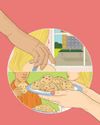
Cookies for Forgiveness
My blowup was half-baked. The apology wasn't
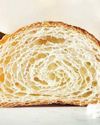
Puff the Magic Pastry
It always rises to the occasion
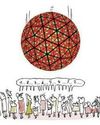
New Year's Traditions Around the World
1 MOST OF US spend the final seconds of each calendar year watching a nearly 12,000-pound geodesic sphere descend over Times Square in New York City.
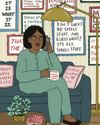
Mom's Wall-Sign Wisdom
She never met a plaque or bumper sticker she didn't quote
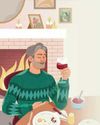
Protect Your 'Holiday Heart'
This joyful time of year can also be dangerously stressful
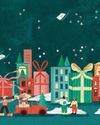
Heroes of the Holidays
It's not just Santa Claus bringing the holiday magic this season. As you'll see, he's got elves all over.
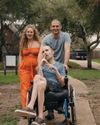
The Man Who Looks After His Wife's Ex
For him and his bride, \"in sickness and in health\" meant something really special
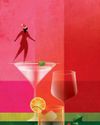
How Risky Are Those Holiday Cocktails, Really?
The latest recommendations about drinking and your health

HOW ONE KENTUCKY TOWN SAVED ITSELF
Downtown Hazard had lost its small-town mojo to drugs. Former addicts are helping to bring it back.
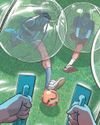
Dream It, Do It, Done!
Your bucket-list goals, accomplished